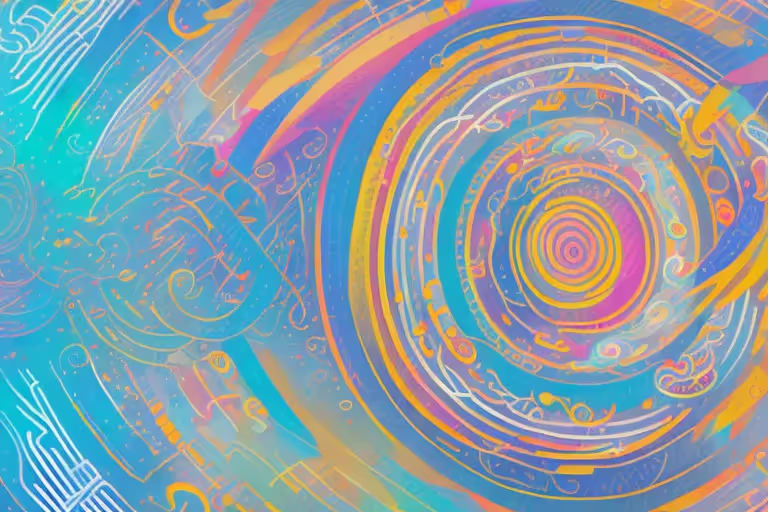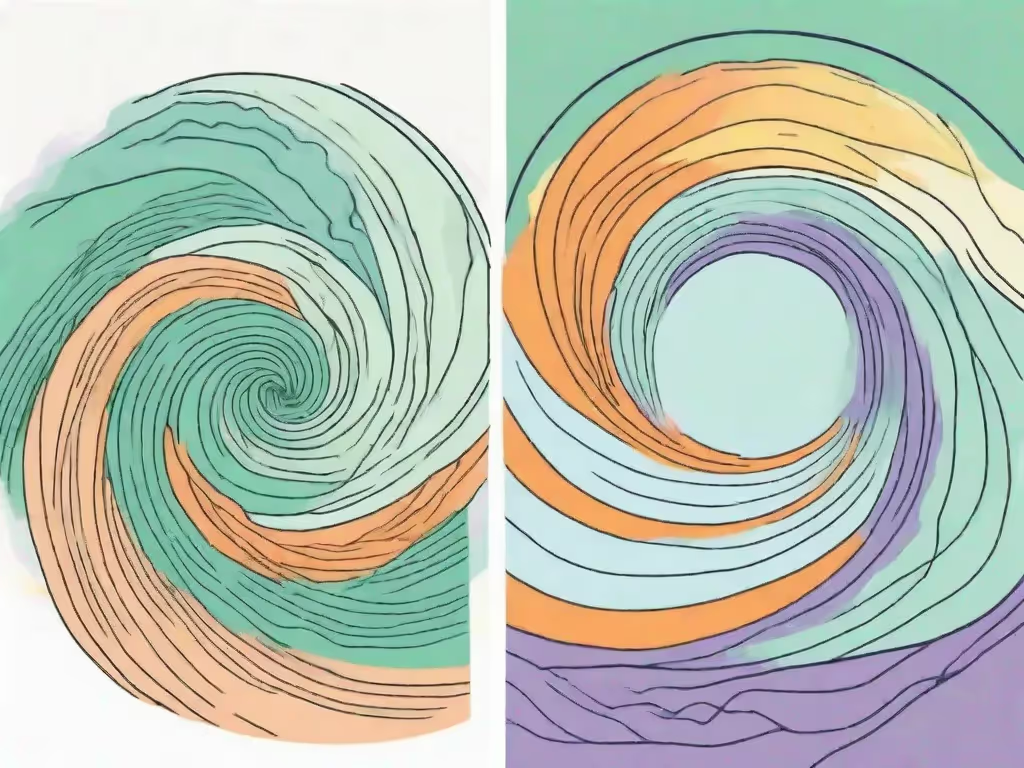Puja in Transcendental Meditation is a fascinating practice that holds deep meaning and significance for its practitioners. It combines the ancient tradition of puja with the modern technique of Transcendental Meditation, creating a unique blend of ritual and mindfulness. Understanding the origins, key principles, and role of puja in Transcendental Meditation is essential to comprehending its true significance. Let's explore this rich tapestry of spirituality and introspection together.
Understanding Transcendental Meditation
Transcendental Meditation, often referred to as TM, is a technique that allows individuals to dive deep into their own consciousness. It was introduced to the world by Maharishi Mahesh Yogi in the 1950s and quickly gained popularity due to its effectiveness in reducing stress and improving overall well-being. By practicing TM, individuals experience a state of profound relaxation and inner peace.
The Origins of Transcendental Meditation
Transcendental Meditation has its roots in ancient Vedic traditions, dating back thousands of years. It draws upon the knowledge passed down through generations of meditators and sages, who understood the power of quieting the mind for spiritual growth and self-realization. Maharishi Mahesh Yogi revived these teachings and made them accessible to a modern audience.
Within the ancient Vedic traditions, meditation was seen as a pathway to connect with the divine and attain enlightenment. The sages would spend years in deep contemplation, seeking to understand the nature of existence and the interconnectedness of all things. Through their dedicated practice, they discovered that by transcending the limitations of the mind, one could tap into a higher state of consciousness.
Maharishi Mahesh Yogi recognized the value of these ancient teachings and sought to bring them to the forefront of modern society. He understood that in the fast-paced and stressful world we live in, there is a great need for a technique that can help individuals find inner peace and balance. Thus, he developed Transcendental Meditation as a practical and accessible method for people of all backgrounds to experience the profound benefits of meditation.
Key Principles of Transcendental Meditation
TM is based on a few key principles that set it apart from other meditation practices. Firstly, it does not require any specific belief system or adherence to a particular religion. This makes it accessible to people from all walks of life. Whether you are a devout follower of a particular faith or consider yourself to be more spiritual than religious, TM can be practiced by anyone seeking to explore the depths of their own consciousness.
Secondly, TM is a simple and effortless technique. Unlike some meditation practices that require intense concentration or control over the mind, TM is designed to be easy and natural. Practitioners are given a personalized mantra, a sacred sound or phrase, which they repeat silently to themselves during meditation. This mantra acts as a vehicle to facilitate the settling of the mind and the transcendence of thoughts.
During TM, the mind settles into a state of deep restfulness, while remaining fully awake and alert. This state, known as transcendental consciousness, allows the individual to experience a profound sense of inner peace and clarity. It is during this state that the mind and body can heal, rejuvenate, and access higher levels of creativity and intelligence.
On the other hand, recent data shows that the effects of TM go beyond mere relaxation. Numerous scientific studies have demonstrated its positive impact on mental health, cognitive abilities, and overall happiness. Researchers have found that regular practice of TM can lead to reduced anxiety and depression, improved focus and concentration, and increased emotional resilience. It has also been shown to have a positive effect on physical health, with practitioners experiencing lower blood pressure, reduced risk of heart disease, and improved immune function.
However, the true depth of TM is experienced when it is combined with the practice of puja. Puja is a traditional ritual of reverence and gratitude, where offerings are made to deities or spiritual figures. In the context of TM, puja is a way to honor the ancient Vedic tradition and express gratitude for the knowledge and wisdom it has imparted. By incorporating puja into their practice, TM practitioners deepen their connection to the ancient lineage of meditators and tap into the collective energy of those who have walked the path before them.
Through the combination of effortless meditation and the practice of puja, Transcendental Meditation offers individuals a profound journey of self-discovery and inner transformation. It provides a pathway to explore the depths of consciousness, unlock hidden potentials, and experience a greater sense of peace, joy, and fulfillment in life.
The Role of Puja in Transcendental Meditation
Puja, originating from the Sanskrit word 'pūjā', is a ritualistic worship that involves offering devotion and gratitude to a deity or a higher power. In Transcendental Meditation, the practice of puja takes on a unique form that complements the overall experience. It serves as a beautiful bridge between the outer world and the inner realm of consciousness.
The Meaning of Puja
Puja is a symbolic act of acknowledging and honoring the divine presence within oneself and the universe. It is a way to express gratitude and seek blessings for spiritual growth. Through puja, practitioners establish a connection with their own inner divinity and the collective consciousness that pervades all of creation.
The Ritual Process of Puja
Puja involves a series of ritualistic gestures, chants, and offerings. The practitioner creates an altar with sacred objects representing various aspects of divinity and offers flowers, incense, and other symbolic items. These actions are accompanied by the recitation of mantras and prayers, invoking the blessings of the divine. The ritual of puja establishes a sense of sacred space and prepares the mind for the practice of Transcendental Meditation.
Despite that, some may wonder about the relevance of puja in a modern world driven by science and logic. However, what science cannot always measure is the subtle realm of consciousness and the profound impact of connecting with something greater than oneself. It is through the practice of puja in TM that one finds harmony between the inner and outer aspects of life.
The Significance of Puja in Transcendental Meditation
Puja plays a significant role in deepening the experience of Transcendental Meditation and amplifying its benefits. It adds a layer of spirituality and reverence to the practice, elevating it beyond a mere relaxation exercise. The significance of puja can be understood through its spiritual and psychological impacts.
Spiritual Benefits of Puja
Through the practice of puja, individuals cultivate a sense of devotion, humility, and gratitude. It serves as a reminder of the interconnectedness of all beings and the role of spirituality in human life. Puja helps individuals to tap into their own divine nature and experience a deeper connection with the higher consciousness that pervades all of existence.
Psychological Impacts of Puja
On a psychological level, puja provides a sense of structure and ritual that can be deeply comforting. It creates a sacred space for introspection, allowing individuals to step away from the chaos of daily life and find solace within themselves. The rituals of puja also engage the senses, which can have a soothing and grounding effect on the mind.
For example, many individuals report feeling more focused, centered, and aligned with their true purpose after incorporating puja into their Transcendental Meditation practice. The combined effect of meditation and puja creates a synergy that enhances self-awareness and personal growth.
Common Misconceptions about Puja in Transcendental Meditation
As with any practice that blends tradition with modernity, there are misconceptions surrounding the role of puja in Transcendental Meditation. Let us address these misunderstandings to gain a clearer understanding of the reality and purpose of puja in this context.
Debunking Myths about Puja
One common misconception is that puja in Transcendental Meditation is a form of idol worship or religious adherence. However, puja in TM is more about acknowledging the divine essence within oneself rather than worshipping external deities. It is a personal and introspective practice that allows individuals to connect with their own spirituality, regardless of their religious beliefs.
The Reality of Puja Practice
Another misconception is that puja is a rigid and dogmatic practice. On the contrary, puja in Transcendental Meditation is adaptable and can be personalized according to individual preferences. There is no fixed way of performing puja, and practitioners are encouraged to find their own unique expression of devotion and gratitude.
This may be because, as humans, we naturally seek a sense of connection and meaning. Puja provides a tangible and accessible way to tap into that innate longing for something greater than ourselves. Incorporating puja into Transcendental Meditation allows practitioners to infuse their practice with a deeper sense of purpose and significance.
The Future of Puja in Transcendental Meditation
As the world continues to evolve, so too does the practice of puja in Transcendental Meditation. Modern adaptations of puja ensure that it remains relevant and accessible to individuals from all walks of life.
Modern Adaptations of Puja
New forms of puja are emerging, blending ancient tradition with contemporary understanding. These adaptations incorporate elements of art, music, and mindfulness, appealing to a wider audience. They allow individuals to connect with the essence of puja in a way that resonates with their own unique sensibilities.
The Continual Relevance of Puja
Despite the evolution of puja, its core essence remains timeless and relevant. The desire to connect with something greater than ourselves, to find solace and meaning in our lives, is an enduring aspect of the human experience. Puja in Transcendental Meditation serves as a gateway to that deeper realm of consciousness, offering a pathway to inner peace, spiritual growth, and self-realization.
Through the combined practice of Transcendental Meditation and puja, individuals can embark on a transformative journey of self-discovery and inner awakening. It is a journey that transcends the limitations of the physical world and opens up new dimensions of awareness.
Discover the power of Transcendental Meditation and puja for yourself by exploring the guided meditations and resources available on the Aura Health App. Embrace the rituals and significance of puja as a way to deepen your meditation practice and unlock the profound benefits it holds. May this fusion of ancient wisdom and modern techniques bring you peace, joy, and spiritual fulfillment.
Aura is Your All In One App for Meditation, Mindfulness Wellbeing
Find peace every day with one app for your whole well-being. There is no one-size-fits-all solution to mental well-being. Aura is the first all-in-one wellness app that learns how to best help you. Discover an endless library of expert-created tracks for your well-being, all taught by the world’s best coaches, therapists, and storytellers. With Aura's personalized recommendations, you can find peace every morning, day and night.



.webp)






.avif)

%20(1).avif)


.avif)
.avif)
.webp)


.avif)


















































































































.avif)

















.svg)









